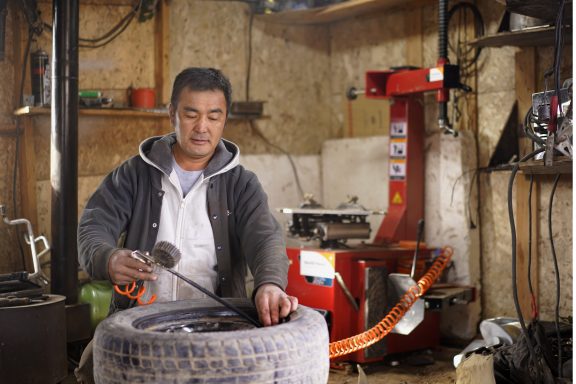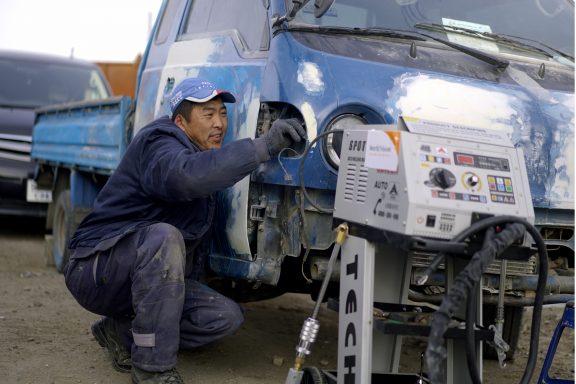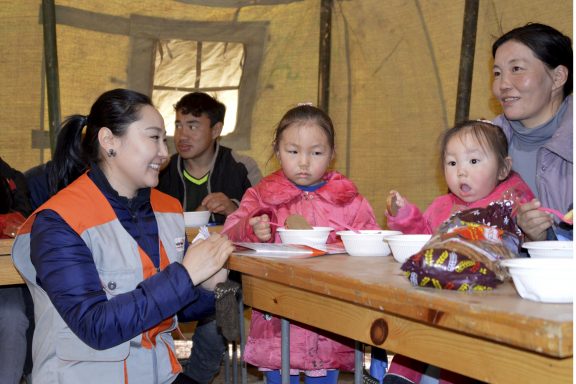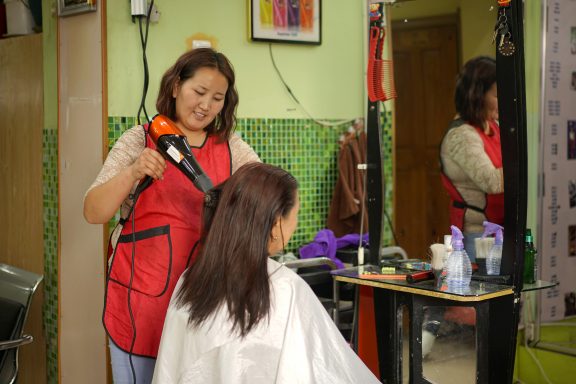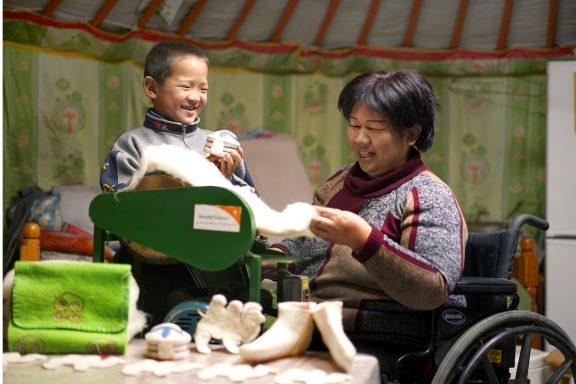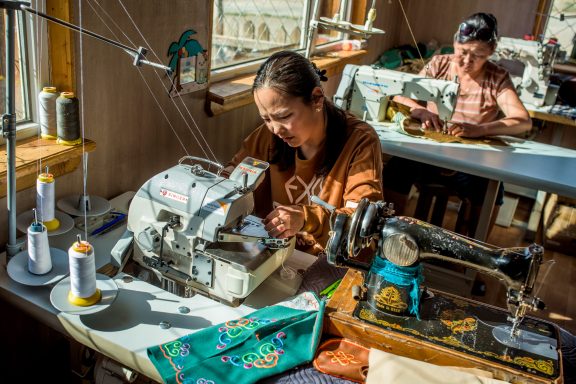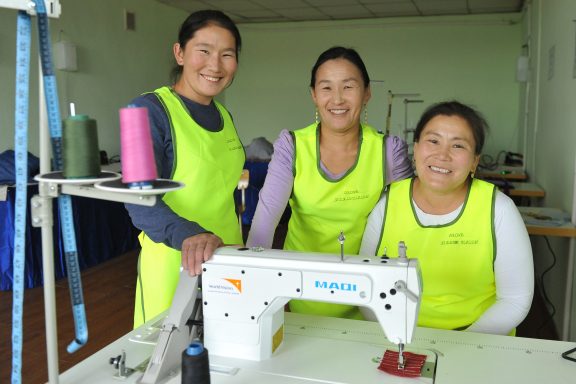Assisting Mongolian young families in ger areas to sustainable livelihoods.
The problem: It is common for families in Mongolia to leave the countryside and move to Ulaanbaatar, home to 60% of the population, in the hopes of better education and economic opportunities. These migrants generally settle in the outskirts of the Ger districts of Ulaanbaatar, which lack access to basic services such as water, sanitation, heating, schools, and kindergartens. Given the lack of qualified skills training, these new residents are faced with fewer opportunities in the formal job sector and often find themselves unemployed or forced to work in informal jobs where wages are low, which has perpetuated poverty not only in the city but also the countryside.
Our intervention (2018 – 2021): Described as a “pathway out of poverty”, World Vision’s Graduation Approach intended to gradually build a family’s capacity and move them out of poverty based on their individual needs. Lorinet Foundation supported the “Young Families Livelihood Improvement” (YFLI) programme with the aim to support livelihoods of 150 at-risk, young families residing in ger areas of Sukhbaatar district of Ulaanbaatar. Identifying each family’s potential for income-increasing opportunities, the programme:
- facilitated livelihood promotion through either household business set-up or wage employment
- enabled social protection by helping families to get the support they need to meet basic needs, deal with crises, and access health and education services
- worked on financial inclusion by supporting new businesses through access to formal banking facilities, credit and insurance mechanisms, and financial literacy training
- advanced social empowerment via life skills training and social integration that cuts across all four pillars, underpinned by a commitment to gender equality
Results:
- The programme benefitted 150 families, including 358 children and 285 other adult family members between 2018 and 2021.
- It enabled progression of 99% of participating families out of poverty, also empowering them to meet their basic needs, deal with crises, and access health and education services
- 71 participants started their own businesses, 57 transitioned to regular, formal jobs
- 8 savings groups were created with 141 members. Funds reached USD 3,000, and the families could access loans and streamline cashflows and also cope with household emergencies
- The intervention ensured govt. participation, establishing a working group under the district governor’s office, designed specifically to serve the programme implementation needs.
Highlight: The programme evaluation, which assessed changes in the well-being of the target households for the programme’s lifespan, concluded the interventions to be ‘relevant and appropriate’ to address crucial issues for communities. Overall, 8 out of 9 indicators on livelihoods and well-being in 2020 and 10 out of 11 indicators in 2021 changed positively for the participating members.
